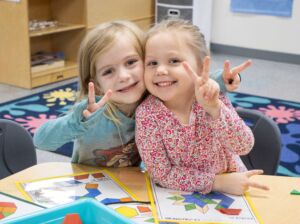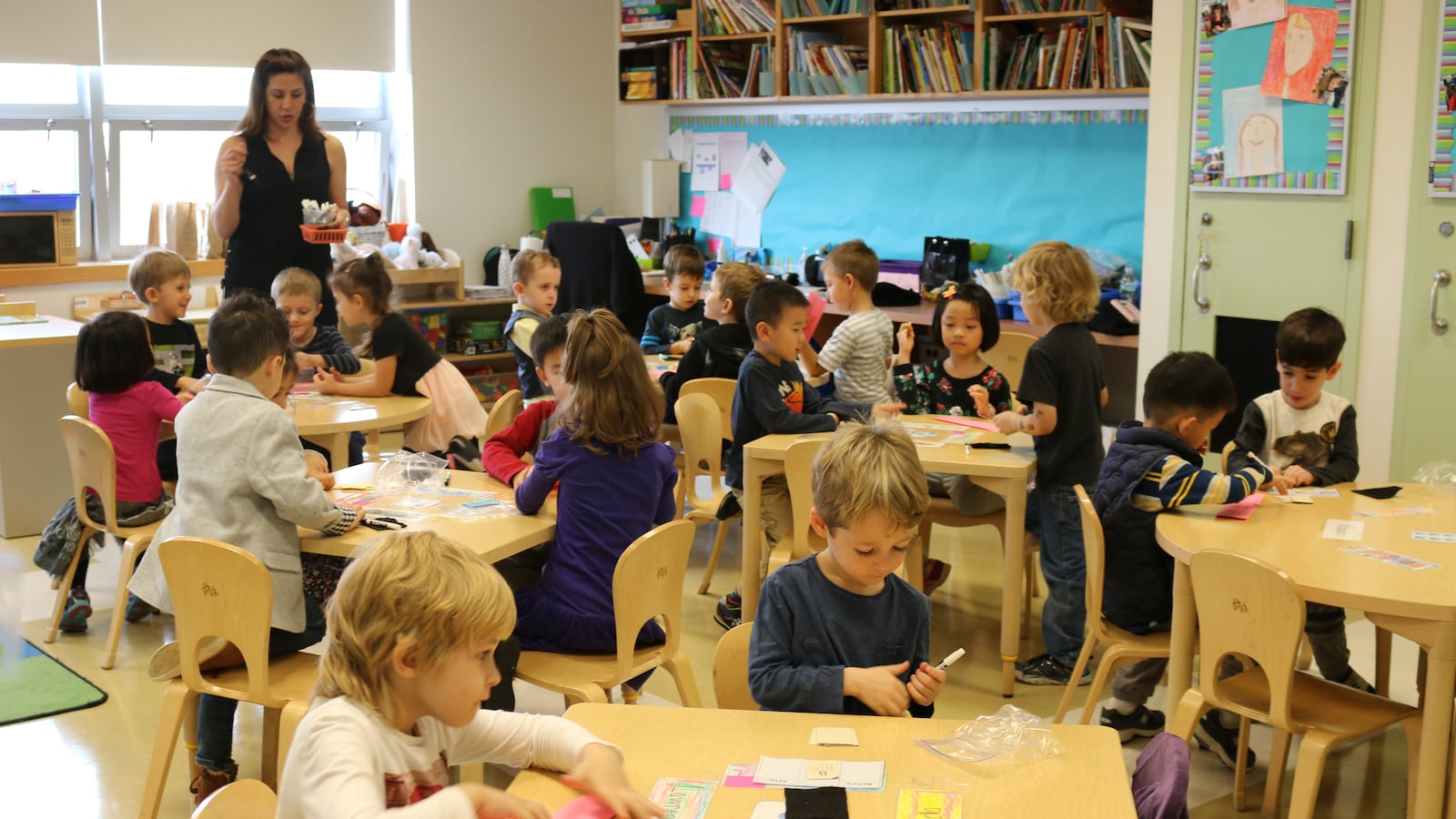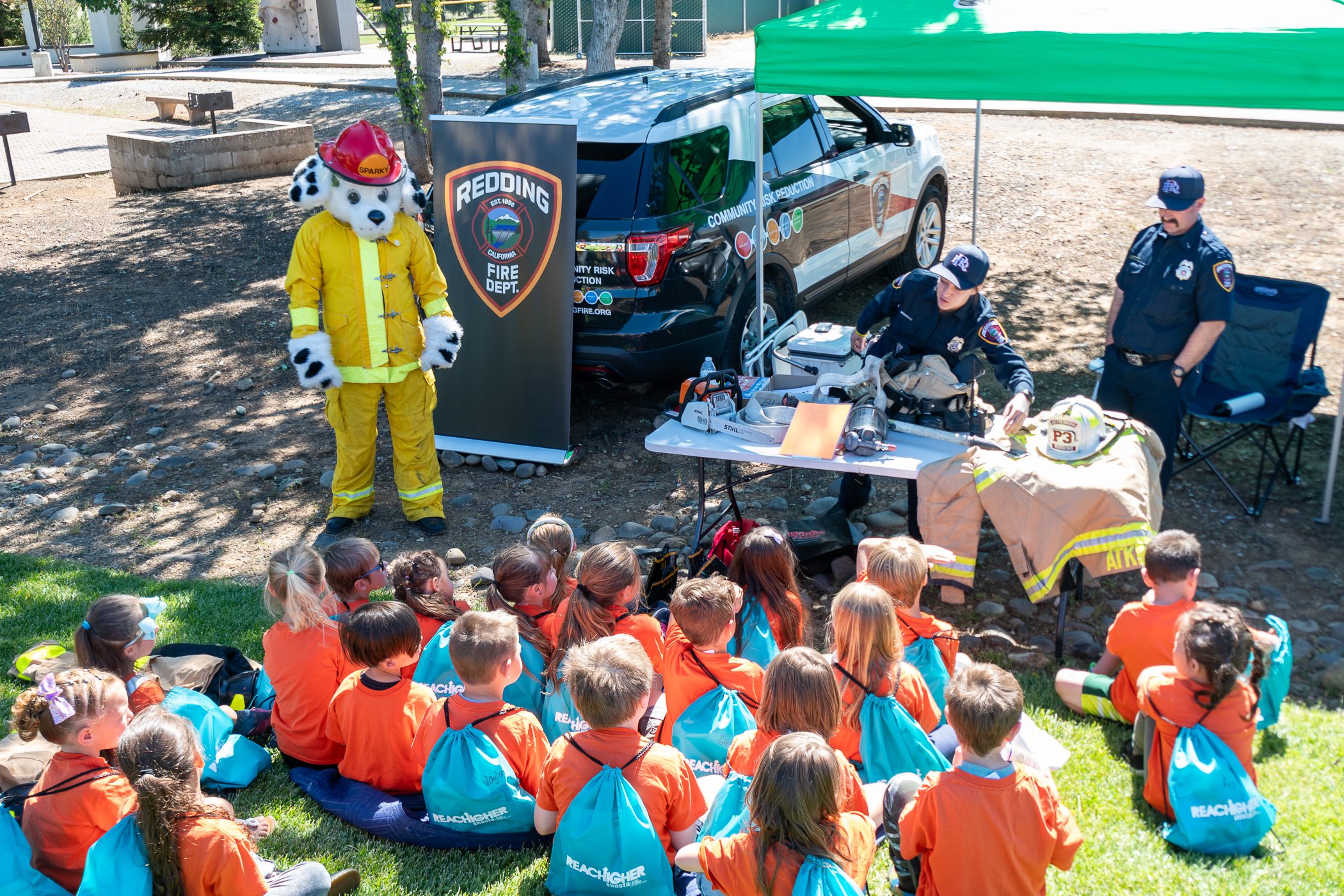Ways Private School programs build critical thinking and teamwork
Wiki Article
The Significance of Interactive Tasks in Elementary School Education
Interactive activities play a crucial role in grade institution education and learning. They involve students and enhance discovering results. Via group tasks and hands-on experiments, trainees experience the material in a functional means. This method deals with varied knowing styles and promotes vital skills. The advantages extend past academics. Exploring the much deeper influence of these activities exposes their importance fit young students' futures. What transformations occur when trainees actively take part?Enhancing Involvement With Interactive Learning
Conventional teaching methods have their merits, interactive knowing significantly enhances pupil involvement in grade school education and learning. This strategy motivates active engagement, enabling students to submerse themselves in the discovering procedure. By using group tasks, hands-on experiments, and technology-driven sources, teachers create an atmosphere where pupils feel a lot more connected to the material.Interactive knowing promotes cooperation among peers, cultivating interaction skills and synergy. It also satisfies diverse learning styles, ensuring that visual, acoustic, and kinesthetic learners can all thrive. Furthermore, pupils are most likely to maintain information when they proactively take part, as opposed to passively getting understanding.
This vibrant method not only makes discovering satisfying yet also infuses a feeling of possession in students concerning their instructional trip. As they involve with the content, their interest and motivation to find out increase, laying a solid structure for future academic success.
Developing Crucial Believing Abilities
Interactive discovering not only enhances involvement but also serves as a stimulant for establishing crucial thinking skills in grade college trainees. With tasks such as problem-based knowing, discussions, and hands-on experiments, trainees are urged to evaluate information, review different perspectives, and formulate reasoned final thoughts. These interactive experiences need students to wonder about assumptions, leading them to think even more deeply regarding numerous subjects.
Moreover, interactive tasks usually existing real-world situations that test trainees to use their understanding artistically. By navigating via these challenges, they discover to recognize pertinent details and make informed decisions. This procedure promotes not just individual critical thinking but additionally urges pupils to articulate their thought procedures, boosting their ability to connect efficiently. Consequently, interactive learning environments cultivate a generation of important thinkers that are better prepared to take on intricate issues in their future academic and professional ventures.
Promoting Collaboration Among Peers
Cultivating partnership among peers is vital in elementary school education, as it enhances team effort and interaction abilities. Taking part in team tasks helps trainees develop depend on and respect for one another, preparing for efficient partnership. Furthermore, analytic with each other permits students to learn from each various other and establish a cumulative technique to obstacles.Teamwork and Interaction Skills
Efficient team effort and interaction abilities are important components of an effective elementary school education. Taking part in interactive activities motivates pupils to team up, share ideas, and resolve problems with each other. Such experiences promote the growth of essential interaction abilities, enabling children to express their thoughts clearly and listen proactively to others. Via synergy, pupils learn to appreciate diverse perspectives, cultivating a sense of community and shared obligation. Structured team tasks, whether in academics or innovative tasks, boost peer interactions, teaching kids how to work out functions and deal with disputes. Consequently, these abilities not just contribute to a positive class setting however additionally prepare trainees for future collective ventures in college and the workplace. In general, teamwork and communication are foundational to holistic development in elementary school.Structure Trust and Respect
Structure depend on and respect amongst peers functions as a keystone for effective partnership in grade college settings. They are more likely to engage actively in team activities when pupils feel valued and valued by their schoolmates. Interactive activities, such as group projects and participating video games, provide possibilities for pupils to gain from each other, cultivating a feeling of area. This environment motivates open communication, allowing trainees to express their concepts and opinions without fear of judgment. As depend on constructs, trainees come to be much more ready to share duties and sustain each other's knowing. Inevitably, cultivating an ambience of trust and regard enhances not only academic results yet additionally social development, gearing up trainees with vital interpersonal abilities for their future endeavors.Problem-Solving Together
Joint analytical involves trainees in critical thinking and team effort, crucial skills for their scholastic and personal development. When students interact to take on challenges, they discover to interact successfully, regard varied point of views, and leverage each various other's toughness. This process enhances their ability to evaluate issues from different angles and establish innovative solutions. Group activities, such as science experiments or mathematics difficulties, advertise energetic engagement and cultivate a sense of neighborhood. As pupils team up, they additionally build social abilities, discovering to discuss and endanger, which are critical for future communications. Ultimately, problem-solving with each other cultivates a helpful understanding atmosphere, equipping students to take ownership of their education while preparing them for collective undertakings past the class.Motivating Creativity and Technology
Encouraging creative thinking and technology in elementary school education can be significantly enhanced through hands-on understanding experiences. These tasks allow pupils to engage straight with principles you can check here and materials, cultivating imaginative thinking. Furthermore, collaborative group tasks can promote diverse ideas and solutions, better supporting a creative setting.Hands-On Understanding Knowledge
A wide range of hands-on understanding experiences greatly boosts imagination and development in quality college education and learning. Involving students in sensible activities allows them to apply theoretical knowledge in real-world contexts, fostering deeper understanding. By manipulating tools and materials, kids create important analytical abilities and learn to assume outside the box. These experiences motivate curiosity and encourage trainees to explore their passions further. Additionally, hands-on tasks can bridge different subjects, linking science, art, and math in purposeful means. This interdisciplinary approach motivates pupils to see links and think creatively. Inevitably, hands-on discovering experiences support a generation of innovators, equipping them with the skills and confidence required to take on future obstacles and contribute to society in special means.Collaborative Group Projects
Hands-on discovering experiences normally bring about the incorporation of joint group projects, which play a crucial function in fostering imagination and advancement in grade institution education and learning. These tasks encourage pupils to work with each other, sharing perspectives and concepts, which boosts problem-solving abilities and vital thinking. With partnership, students learn to interact effectively and regard varied perspectives, crucial abilities for their future. Additionally, group projects give possibilities for trainees to try out different duties, raising their adaptability and confidence. Taking part in this participating setting enables them to explore their imagination, pressing the limits of conventional knowing. Inevitably, joint team jobs not only enrich the educational experience but additionally prepare students for real-world obstacles that require teamwork and innovative reasoning.Structure Self-confidence and Self-reliance
As students take part in interactive tasks, they typically discover possibilities to develop confidence and freedom. These activities, whether they include hands-on tasks, role-playing, or analytic jobs, motivate students to take initiative and reveal their ideas openly. By joining such experiences, trainees discover to trust their capacities and choose without counting exclusively on guidance from instructors or peers.Interactive tasks cultivate a feeling of ownership over knowing. When pupils take on obstacles collaboratively official statement or individually, they develop essential believing abilities and strength. This process not only boosts their understanding of the subject matter however additionally empowers them to take dangers in their knowing trip.
As they browse numerous interactive scenarios, trainees progressively shed their insecurity, paving the method for increased self-confidence - Private School. Eventually, these tasks play a necessary role in nurturing independent and confident students, geared up to face future academic and personal difficulties
Producing a Positive Classroom Environment
While fostering a favorable classroom atmosphere is vital for efficient discovering, it requires willful initiative from instructors to develop a space where students really feel secure, reputable, and involved. A favorable environment motivates cooperation, enabling trainees to reveal themselves without concern of judgment.Educators can attain this by developing clear assumptions, promoting common regard, and acknowledging specific payments. Including interactive activities further boosts engagement, making finding out more vibrant and pleasurable.
In addition, a nurturing atmosphere supports social-emotional growth, as pupils discover to navigate partnerships and settle conflicts. Educators play an important function in modeling positive actions and strengthening a culture of compassion and inclusivity.
Regularly Asked Concerns

How Can Parents Support Interactive Understanding at Home?
Parents can sustain interactive discovering at home by providing engaging products, encouraging hands-on tasks, integrating educational video games, promoting conversations, and producing a nurturing setting that advertises interest and exploration in their kids's learning experiences. (Grade School)What Kinds of Interactive Activities Are Most Reliable?
Hands-on projects, joint video games, role-playing circumstances, and educational modern technology applications are amongst one of the most effective interactive tasks. These involve students, improve important thinking skills, and advertise team effort, eventually fostering a much deeper understanding of various subjects.Just How Do Interactive Tasks Deal With Different Understanding Styles?
Interactive activities involve aesthetic, auditory, and kinesthetic students by integrating varied techniques. These activities assist in understanding through hands-on experiences, joint conversations, and visual aids, allowing trainees to absorb info according to their recommended discovering design.What Are the Prices Related To Implementing Interactive Tasks?

Implementing interactive activities incurs prices such as materials, training for educators, innovation upgrades, and possible center modifications. Budget plan restraints can likewise influence the regularity and variety of activities used to pupils in educational settings.
Exactly How Can Educators Analyze the Effect of Interactive Knowing?
Educators can assess the influence of interactive knowing with observations, student comments, efficiency metrics, and comparative analysis of examination ratings prior to and after application, making certain a complete understanding of involvement and knowledge retention improvements.Through activities such as problem-based discovering, discussions, and hands-on experiments, students are urged to evaluate details, assess different viewpoints, and formulate reasoned final thoughts. Interactive tasks commonly existing real-world scenarios that challenge trainees to apply their knowledge artistically. Engaging in interactive tasks motivates pupils to collaborate, share concepts, and fix article source troubles with each other. Interactive tasks, such as team projects and participating games, give chances for students to find out from one an additional, promoting a feeling of area. As pupils engage in interactive tasks, they frequently find possibilities to build confidence and freedom.
Report this wiki page